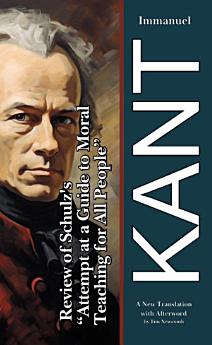Anthropology from a Pragmatic Perspective
この電子書籍について
Kant distinguishes between physiological and pragmatic anthropology, emphasizing the latter's focus on what human beings make of themselves through free agency. He argues that an understanding of human nature is essential for broadening one's anthropological scope, which can be enhanced through travel and the reading of travelogues. Kant also discusses the morality and aesthetics of egoism, suggesting that egoism can be logical, aesthetic, or practical, and that it opposes pluralism. He considers the nuances of egoistic language and the moral implications of different types of egoism.
The first part, 'Anthropological Didactics', examines the faculties of human cognition, including consciousness, egoism, and the arbitrary consciousness of ideas. Kant explores the nuances of self-perception, the formation of habits, and the influence of external stimuli on human cognition and behavior. The complexity of self-observation is a key theme, with Kant exploring how self-awareness and external perceptions shape one's understanding of oneself and others. He also explores the idea of dark and clear ideas, clarifying the relationship between consciousness and perception.
This work represented the last major text Kant edited himself, distilling nearly twenty-five years of annual lectures on anthropology that he taught from 1772 until his retirement in 1796, receiving the largest first printing of any of his works and becoming one of his most popular courses despite charging fees. The book distinguished between physiological anthropology (investigating "what Nature makes of man") and pragmatic anthropology (examining "what man as a free being makes of himself, what he can make of himself, and what he ought to make of himself"), focusing on the latter to establish a systematic doctrine of human knowledge addressed to a broad audience seeking practical worldly wisdom. Divided into Anthropological Didactic (on cognizing the interior and exterior of human beings) and Anthropological Characteristic (on cognizing the interior from the exterior), the work explored sensation, imagination, judgment, aesthetic taste, emotion, passion, moral character, and the character of the human species in relation to cosmopolitan society, providing Kant's empirical psychology after he determined that rational psychology had nothing to contribute and offering his empirical ethics with knowledge necessary for applying the categorical imperative to actual human life.
The text defined anthropology as seeking to answer the fundamental question "what is the human being," positioning it as the discipline with the highest intellectual scope while presenting humans as world citizens within the cosmos, though critics noted it never fully completed the project of showing how empirical knowledge helps determine particular duties. Michel Foucault made the work central to his 1964 secondary thesis, arguing that Kant's anthropology inaugurates the problematic modern practice of studying humans as empirical objects while simultaneously treating them as transcendental subjects, creating a contradiction that would animate Foucault's later critiques of anthropological institutions and the concept of "man" as both subject and object. Scholars have identified the work as the best introduction for layperson readers to Kant's philosophy due to its accessible style and practical orientation, though it remained undervalued for many years before recent scholarship recognized its vital role in connecting Kant's metaphysics of nature, metaphysics of morals, and political theory while revealing insights into his own character and philosophical orientation at the close of his productive career.








